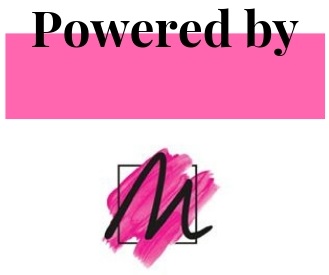This week in 1815, Jane Austen was preparing for her 40th birthday on Dec. 16. But rather than looking forward to the gifts she might receive, her thoughts was occupied by what she was in a position to give.
“Emma” would soon be published, and Austen was entitled to complimentary copies. Feeling obliged to offer most of these dozen books to relatives, she was left with only three. These she earmarked for wildly different recipients: an amateur-writer friend, Anne Sharp; the best-selling novelist Maria Edgeworth; and the prince regent, who had already sent a request to the author for a copy. What’s more, he wanted Austen to dedicate her novel to him.
The stories behind Austen’s choice of these three recipients reveal moral dilemmas that still speak with uncanny resonance to women today.
Austen was distressed by the demands of the prince regent, a man she’d long despised for his famed womanizing. A few years earlier, when a royal sex scandal swept the nation, her sympathies had rested with his estranged wife. “Because she is a woman,” the novelist explained privately to a female friend, “& because I hate her Husband.”
But then, as now, it was dangerous to stand up publicly to a powerful man – especially once he had set his sights on you. On recently receiving a royal command to visit one of the prince’s residences, Austen had felt duty-bound to attend. It was in these lavishly decorated chambers, heavy on crystal and gilt, that she had been invited to dedicate “Emma” to His Royal Highness.
Austen abhorred the prospect of associating herself with a philanderer who flaunted his wealth when most of the country was struggling to make ends meet, and so she’d dared to ask the court librarian whether she might avoid making the requested dedication. Since his response failed to offer reassurance, Austen grudgingly concluded that she could not risk spurning the ruler of the land.
Nonetheless, she could console herself that such a dedication might help her leverage greater financial security and literary acclaim – aims she was not shy to admit. And she could at least reserve her final copies of “Emma” for two fellow female writers, although her reasons for choosing each of them could not have been more different.
Maria Edgeworth, then one of Britain’s most famous novelists, was far better known than Austen. A resulting endorsement from this established author could have brought Austen improved sales and greater recognition. But Edgeworth failed even to acknowledge receipt of the gift. She would later confess to admiring Austen’s novel, but – perhaps protecting her space at the top – she never openly praised her literary peer.
In contrast, Austen’s response to the work of her contemporary offers inspiration to ambitious women today. Using one of the few outlets available to her, she publicly complimented Edgeworth’s work within the pages of one of her own novels, “Northanger Abbey.” This sisterly act demonstrates the importance of talented women amplifying each other’s achievements.
Austen’s behaviour feels particularly relevant in the current climate since it is only by working together that women will overturn the threatening behaviour that still too often prevails among powerful men. The little-known story behind Austen’s class-defying friendship with Anne Sharp – an amateur playwright who’d worked as one of the family’s governesses – suggests that these two women understood the importance of female solidarity in the face of male entitlement. By selecting Sharp as the final recipient of a precious copy of “Emma,” Austen chose to favour this unlikely friend over her own brother, Sharp’s former employer.
By this stage, Sharp had confided in Austen about the trials she had endured over the course of her working life. In one home, she had suffered the advances of a man who held power over her – a common problem for governesses, who, as neither typical servants nor family members, were vulnerable to predatory upper-classmen. Austen, long aware of her friend’s isolation, had always gone out of her way to help. This included looking for alternative employment for Sharp and inviting her to stay to get her out of harm’s way. And Austen accepted without question the governess’ allegations of sexual harassment.
Sharp would have made a far more fitting dedicatee for “Emma” than the licentious prince regent. She would have understood the predicament of the heroine, who finds herself trapped in a carriage with a man who repeatedly takes hold of her against her will. When he ignores her quiet attempts to rebut his advances, Emma summons the courage to speak – her voice a gift of resistance to all who read of this struggle today and dare to say, “Me Too.”





